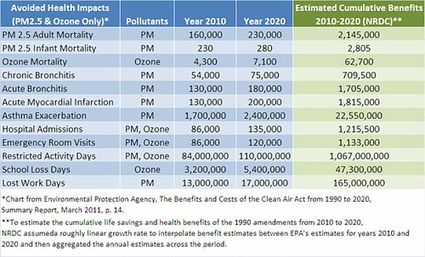
What are the main health impacts of particulate matter? How does particulate air pollution have an effect your health? What is meant by particulate nature of matter? What effects can particulates have on the environment? The size of particles is directly linked to their potential for causing health.

Fine particles (PM ) are the main cause of reduced visibility (haze). Environmental Effects. Particle Pollution and.
Over the past decades, research has focused on the question which particles may be more toxic than others, but it remains difficult to disentangle the effects of different types of particles fromeach other or from other pollutants. People with diabetes also may be at increased risk,. Lung Tissue Inflammation. O — and all-cause mortality in a population of million Medicare enrollees residing in the continental United States. PM is a widespread air pollutant , consisting of a mixture of solid and liquid particles suspended in the air.
However, many studies show that the relationship is deeper and far more complicated than originally thought. Some particles less than micrometers in diameter can get deep into your lungs and some may even get into your bloodstream. Despite some improvements, current levels of air pollution still pose a considerable risk to the environment and to human health in the WHO European Region. One issue of concern is that monitoring of particulate matter is very limited in the countries of eastern Europe, the Caucasus and central Asia.
There is growing evidence that the most harmful effects of particulate matter are related to the size of the particle. As particles decrease in size, they are hypothesized to increase acidity and their ability to penetrate into the lower airways. Although we are not yet able to determine a safe level of exposure,.

Health effects of particulate matter 3. Mortality studies are the most numerous. Given the pulmonary penetration of the particles,. Cardiovascular diseases. Perhaps unexpectedly, the cardiovascular system seems to be most.
Neurological disorders. Small particles less than micrometers in diameter pose the greatest problems, because they can get deep into your lungs, and some may even get into your bloodstream. Mukherjee A(1), Agrawal M(2). This can lead to increased permeability, or the ability of liquids and gases to pass through to the lungs. The biggest health threat from smoke is from fine particles.

These microscopic particles can penetrate deep into your lungs. They can cause a range of health problems, from burning eyes and a runny nose to aggravated chronic heart and lung diseases. Exposure to particle pollution is even linked to premature death.
So what are the health effects ? Even short-term exposure to particulate matter increases stress hormone levels such as cortisol and adrenaline.
No comments:
Post a Comment
Note: Only a member of this blog may post a comment.